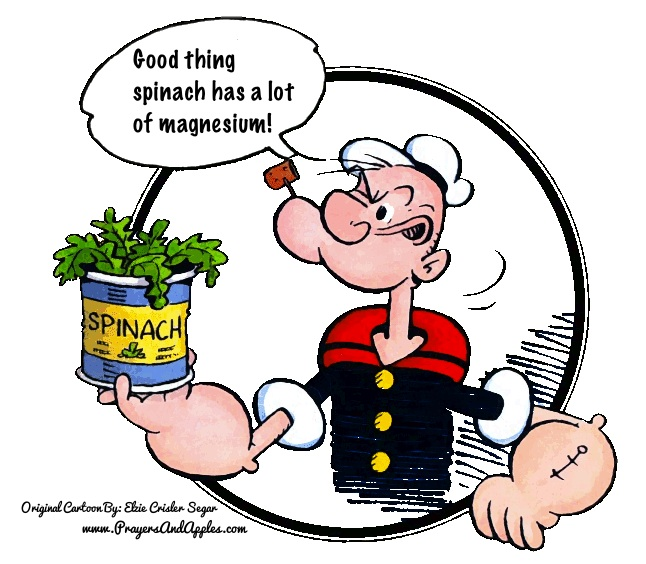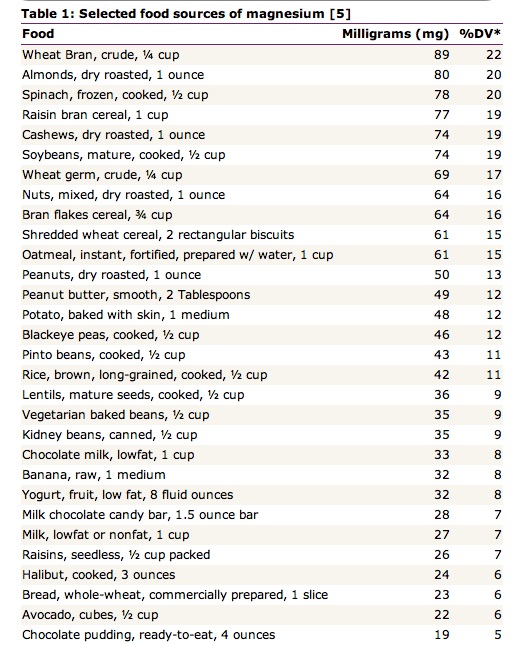 So, ever since my last post on exercise and energy, I’ve been researching foods that increase energy. And now that over a week has gone by, I realize that I can’t procrastinate any longer and I just have to tell you the truth:
So, ever since my last post on exercise and energy, I’ve been researching foods that increase energy. And now that over a week has gone by, I realize that I can’t procrastinate any longer and I just have to tell you the truth:
No one food, on its own, is really going to increase your energy that much.
Now I know that’s not what you want to hear, but you come to Prayers and Apples for mind/body/spirit science, not mind/body/spirit brainwashing.
Healthy foods fix a lot of problems, but let’s keep it real – a wheatgrass smoothie isn’t going to change your life.
That being said, food does play a huge role in the energy equation. But my point remains: one magic food off an “energy list” isn’t going to make you feel like you drank a Red Bull. Which is why, as much as I love a good list, I just couldn’t bring myself to call this post, “The Top Ten Energy Foods!”…even though I seriously came like this close.
(Oh and by the way: don’t drink Red Bull!)
How the body processes different types of foods, the combination in which nutrients enter the digestive system, the timing of various meals – these are the factors that make food important to energy. I don’t care if you eat halibut for breakfast, lunch and dinner (and, like the Red Bull: I wouldn’t recommend it) – no one food is going to turn you into a super hero.
(Unless it’s spinach and you’re Popeye – in which case, yes, that will definitely 100% happen.)
Even though it’s really interesting (I promise!), figuring out how your body breaks down food can take a while. And so, instead of going into all that today, I thought we could talk about magnesium because that sounds like so much more fun? because that way, we can still make a list! And everybody knows: when you read an article about food and energy – or food and anything – you’re really just looking for the list of foods at the end (don’t worry – I do the same thing!).
Let’s talk Mg2+! (That’s what the cool kids call magnesium… in another universe where cool kids sit around and talk about magnesium.)
As described by Lukaski & Nielsen (with a few side notes…):
Magnesium is an intracellular cation (a.k.a. positive charge ion in your cells) that serves as a cofactor for over 300 enzymatic reactions in which food is catabolized (broken down/energy released) and chemical products are formed (by the way, 300 is a lot). It is required for both aerobic and anaerobic energy production (basically: all energy production) and for glycolysis as part of the Mg-ATP complex (long story short: ATP is the main source of energy in your cells and ATP needs to hang out with Mg2+ in order to do its thing). Magnesium also serves as a regulator of many physiologic functions including neuromuscular, cardiovascular, immune and hormonal functions, as well as the maintenance of cellular membrane stability (in other words: magnesium is really important).
So, as you can see, your body’s not getting anything done without magnesium. That’s why all of those lists you find when you Google, “foods that increase energy” include magnesium-rich foods like cashews, almonds and hazelnuts (that’s right, I’m looking at you, WebMD).
You didn’t think you were getting out of this post without a research study did you?
One interesting 2002 study examined how low levels of magnesium interact with exercise in postmenopausal women (earlier research had primarily focused on athletes). Researchers concluded:
Supplementation of magnesium-depleted individuals consistently results in significant improvements in physiologic function and some measures of performance.
…this report provides the first evidence that low dietary magnesium, in amounts consumed by some groups of physically active individuals, impairs function during conditions of increased energy expenditure and that functional limitations occur despite the level of physical fitness (e.g., trained athletes vs. relatively sedentary postmenopausal women) [emphasis added].
It’s important to note that this study is talking about energy increasing as the normal/recommended level of magnesium is reached. Research about taking extra magnesium has yielded inconsistent results.
Not sure what the recommended level is? (I honestly didn’t have a clue before I wrote today’s post!) Just check out this chart from the Food and Nutrition Board, Institute of Medicine and National Academy of Sciences (click to enlarge):
Okay, so just to wrap up: there’s no magical Red Bull food, magnesium’s really important and we’ll get into how your body processes food later. But right now you’re probably getting pretty antsy about that list. So, without further ado, courtesy of the United States Department of Agriculture and the Office of Dietary Supplements, I give you:
The Magnesium-Rich Foods List!
If you’re struggling with your energy levels, make sure you’re getting the recommended daily amount of magnesium – if not, stock up on the foods above!
I’d love to hear what you think about the foods on this list! Do you already eat a lot of them? Have you ever noticed a difference in energy based on your diet? What foods make you the most tired?

My post publishing schedule is super random (I really need to work on that! lol)
So if you don’t want to miss new articles, feel free to enter your email address below and we’ll shoot you a message when new posts go live :) ♥
*No boring spam, I promise! :) Just fun mind-body-spirit stuff! ♥
*Please note: You’ll receive an email asking you to confirm your subscription. Make sure you open and click confirm – otherwise, you won’t get updates! :)
You can also find Prayers and Apples on the social media sites below! ♥
Other Posts You Might Like:
- Positive Psychology: The Science of Beyonce
- How to Be Optimistic (Like a Boss)
- Gluten and Depression: The Jimi Hendrix Experience
- What Percent of Happiness Can We Control?
- Exercise and Mood: The Basics
- ADHD, Autism and the Gluten Connection
- Depression Research Everybody Deserves to Know
- Can You Really Die from a Broken Heart?
References
Bliss, R.M. (May 2004). Lack Energy? Maybe It’s Your Magnesium Level. Agricultural Research. Retrieved: 6 January 2013.
Food and Nutrition Board, Institute of Medicine, National Academies. (2013). Dietary Reference Intakes (DRIs): Recommended Intakes for Individuals. Retrieved: 14 January 2013.
Garfinkel L. & Garfinkel D. (1985). Magnesium regulation of the glycolytic pathway and the enzymes involved. Magnesium, 4(2-3): 60–72.
Lukaski, H.C. & Nielsen, F.H. (May 2002). Dietary Magnesium Depletion Affects Metabolic Responses during Submaximal Exercise in Postmenopausal Women. Journal of Nutrition, 132(5), 930-935.
Martin, L.J. (24 September 2012). Energy Foods Slideshow: A Diet to Boost Your Mood and Energy Level. WebMd. Retrieved: 6 January 2013.
Office of Dietary Supplements (13 July 2009). Dietary Supplement Fact Sheet: Magnesium. Retrieved: 14 January 2013.
Standing Committee on the Scientific Evaluation of Dietary Reference Intakes, Food and Nutrition Board, Institute of Medicine. (1997). Magnesium. Dietary Reference Intakes for Calcium, Phosphorus, Magnesium, Vitamin D, and Fluoride: 190-249. National Academy Press: Washington, DC.
Wacker, W.E.C. & Parisi, A.F. (1968). Magnesium Metabolism. New England Journal of Medicine, 45: 658–663, 712–717, 772–776. doi: 10.1056/NEJM196803282781306
*Image source (“Nothing great…”)









Thank you so much for sharing this! I really love learning about and getting up to date info about what our bodies need to function properly.
Any amounts of sugar puts me into a coma. :/.
Thanks girl!
Brandi: I’m the same way! Sugar is a killer! I wrote a post on low blood sugar you might like – I’m planning on putting together a really comprehensive article on sugar in the next month :) thx for reading! :)
Hey Jessica! I just discovered your blog and love it! I love the mix of faith and nutrition. It’s so great that you have such informative posts too. I will definitely be back :)
Hey! So glad you like it! That just made my day :)
I eat a lot of spinach because I secretly believe, deep down in my heart, that it does make you super-strong like Popeye. It hasn’t happened yet, but that may be because I use fresh instead of canned, but have you ever had canned spinach? Blech!
maybe that’s my problem too! lol :) i’ve never tried it… and i think that’s gonna stay on the “never” list haha
I suffered from terrible bouts of insomnia and restless leg syndrome. Someone mentioned I should try Magnesium supplements, I did and I have been sleeping like a baby from the day I started. It was freakish how quickly they kicked in. Thankfully my levels are up now so I maintain my Mg levels through diet alone. Go the science and nutrition geeks I say !
Yay for the science and nutrition geeks indeed! :) We get better sleep, energy AND moods ;) ..so glad it worked for you!
Great post. I’m experiencing a few of these issues as well..
I would also like to add that low magnesium levels may also lead to PVCs and PACs . That is what happened to me. Doctors could not figure it out so I had to become a physiology expert on my own to solve the riddle. As soon as I started taking a triple magnesium supplement my PVCs/PACs completely went away. As a bonus my energy went way up.
I was unaware of that connection, Paul – thank you for writing! I’m glad you were able to find something that works :)
Great article!After taking magnesium supplements I experienced relief of stiffness and better sleep.I would also add that dark chocolate (more then 60% cocoa) is good source of magnesium.
Thanks, Mizra! And always good to have another excuse to eat chocolate! ;) hehe Thanks for for reading! xo
I have Rheumatoid Arthritis and they had recently put me on steroids to lessen the inflammation & stiffness….wasn’t working. My primary doc recommended magnesium supplements to help lessen the night cramps in my hands….and all of a sudden I feel like a new person. I’m glad you are confirming my theory that the magnesium is helping relieve the stiffness. Good luck to you!
Hi Angelina! Thanks so much – and so glad to hear your stiffness is getting better! :)